Arts & Entertainment
Reel Affirmations returns
Abbreviated film festival features dramas, docs and comedies exploring a wide spectrum of LGBT life
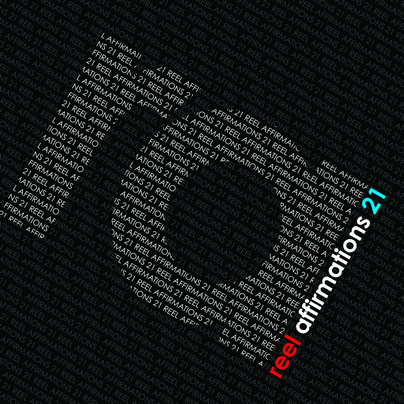
The Reel Affirmations Film Festival is scheduled to kick off tonight (Thursday) with screenings of “Kiss Me” and “I Do” (go here for reviews), but most of the films will be screened Friday and through the weekend at either the D.C. Jewish Community Center (1529 16th St., N.W.), the Goethe Institut (812 7th St., N.W.) or the Carnegie Institution for Science (1530 P St., N.W.).
Tickets start at $10 but various packages are available. Visit reelaffirmations.org to purchase or for more information. Also be sure to pick up a Blade-produced program book, which has all the information you need about the One in Ten event.
The program book contains descriptions but the Blade had exclusive access to review the films. Our critiques follow. Contributing writers are Patrick Folliard, Brian T. Carney, Robbie Barnett, Santiago Melli-Huber and Joey DiGuglielmo.
‘Molly’s Girl’
Friday, 7 p.m.
D.C. Jewish Community Center
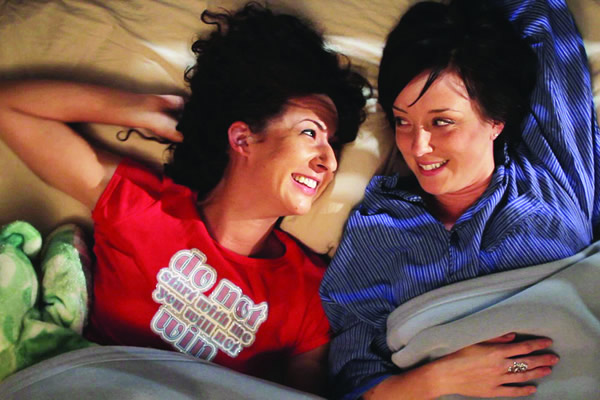 Everyone has that one clingy ex who can’t take no for an answer, but there are better ways to deal with it than in “Molly’s Girl.”
Everyone has that one clingy ex who can’t take no for an answer, but there are better ways to deal with it than in “Molly’s Girl.”
Molly (Kristina Valada-Viars) is a pathological liar and a straight girl, who has her first lesbian experience with Mercedes (Emily Schweitz), whose girlfriend broke up with her for focusing too much on her job as a gay rights activist. Mercedes has a drunken one-night stand with Molly, and Molly proceeds to stalk Mercedes to the point of violating a restraining order. Mercedes then learns that Molly is the daughter of an independent state senator whose opinion on LGBT rights she has been trying to sway.
Molly, desperate for attention and affection, agrees to Mercedes’ insane proposal to go to the senator’s house for a weekend under the guise of being an engaged couple. Mercedes believes it will make the senator vote in her favor. The plan is flawless, except for the fact that it blows up in everybody’s faces. Molly’s family has been tired of her lying and delusions for years and sees it as just another cry for attention.
Schweitz’s performance as Mercedes and her character development almost save the movie, but the premise of trying to trick a senator that way would ruin anybody’s career and probably do further damage to her cause. There are some genuinely funny moments and a couple of strong performances, but between the ill-conceived plot and the character of Molly, it’s only worth seeing if you enjoy clingy exes and disapproving families. (SMH)
‘Yossi’
Friday, 9 p.m.
D.C. Jewish Community Center
 “Yossi” is a sequel to the surprise Israeli gay indie hit “Yossi and Jagger” (2002). In the first movie, Yossi Guttman is a commander in the Israeli army stationed on the Lebanon border. When Lior joins the unit as Yossi’s second-in-command, the two begin a passionate but secret affair.
“Yossi” is a sequel to the surprise Israeli gay indie hit “Yossi and Jagger” (2002). In the first movie, Yossi Guttman is a commander in the Israeli army stationed on the Lebanon border. When Lior joins the unit as Yossi’s second-in-command, the two begin a passionate but secret affair.
Lior (who is called Jagger because he has “the moves like Jagger”) is killed in an ill-considered skirmish. Yossi goes to sit shiva with Lior’s family, but does not tell them about their relationship.
“Yossi” picks up the action 10 years later. Yossi is now Dr. Guttman, a successful cardiologist. But, despite his professional achievements, Yossi remains in an emotional and social fog. His well-meaning colleagues try to break him out of his shell. Despite rumors about his sexuality, Nina, a nurse, asks Yossi out on a date, and Moti, a fellow doctor, asks Yossi to be his wingman when he hits the bars to celebrate his divorce.
Yossi decides to return to return the region where he and Lior met. His plans are changed, however, when he encounters a group of rowdy young soldiers and slowly begins to drop his emotional barriers.
Surrounded by a strong cast, award-winning Israeli actor Ohad Knoller offers a powerful performance as Yossi. He amazingly brings Yossi’s stupor to vivid life, offering a rich and nuanced portrayal of a man frozen in place, but bravely trying to move forward. Knoller is achingly vulnerable as he makes the journey through a disastrous online hook-up (his date berates him for sending a picture of his younger and thinner self), his meeting with Lior’s family and his heart-rending emotional and physical undressing when he finally embraces a new lover.
Knoller is given strong support by writer Itay Segal and director Eytan Fox. The taut screenplay balances moments of solitary silence with a series of tense encounters and moves the action forward at an appropriately measured pace. The direction is strong and assured. Fox lets the camera linger on Knoller’s expressive face, but never lets the story lag.
In Hebrew, with English subtitles. (BTC)
‘Lesbiana’
Saturday, 11 a.m.
D.C. Jewish Community Center
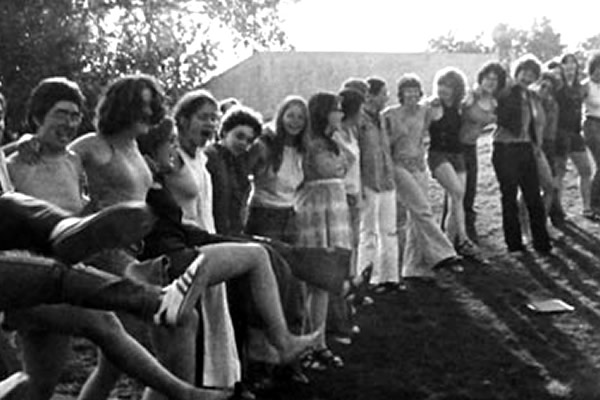 Tight (just 63 mins.) but with a leisurely feel, “Lesbiana” is a documentary about the separatist movement among lesbians and feminists in the ‘70s and ‘80s that found groups of women, to varying degrees, living in women-only communes on various beaches and rural lands all over the country.
Tight (just 63 mins.) but with a leisurely feel, “Lesbiana” is a documentary about the separatist movement among lesbians and feminists in the ‘70s and ‘80s that found groups of women, to varying degrees, living in women-only communes on various beaches and rural lands all over the country.
Recounted mostly by the women themselves — some now in their senior years — this piece from filmmaker Myriam Fougere (a participant herself) is a fascinating look into a world few in the LGBT world, even most lesbians, didn’t get to experience first hand. The era comes roaring to life through evocative first-hand testimony and archival stills and video footage. The film deftly balances the more philosophical and academic side of the convictions with stories from more “everyday”-type lesbians who share the more practical and experiential side of things. D.C.-based lesbian author Evelyn Torlon Becker makes a memorable appearance talking about her Jewish identity.
While the film never lags, it suffers from being a bit too vague. About half the testimony is from French-speaking Canadian lesbians (presented with subtitles), yet the geographic connections between them and their American counterparts are not so much as hinted at. The filmmaker introduces herself into the narrative, early on saying this is her story of her travels to find out whatever happened to many of these women, yet she disappears almost entirely from the rest of the piece which gives the film a dangling feeling. She deserves credit for not forcing herself too extensively into the work, but a bit more personal context would have been helpful.
Slightly clearer but still not fully explored are the arguments for separatist living and what the women hoped to gain from ridding themselves fully from patriarchy. Hearing these women tell their stories, one does get a sense of why they felt the way they did and how they interacted with each other at various music festivals and communal gathering places, yet the film could have used a bit more structure. We get little sense of the degree, if any, to which these women felt a sense of sisterhood with either straight feminists or urban lesbian feminists who chose not to sequester themselves. (JD)
‘Difficult Love’
Shown in a double bill with ‘Lesbiana’ (see above)
Photographer and visual activist Zanele Muholi takes us into her world through the eyes of her photographic lens in “Difficult Love.”
The subject of her activism and photography is black lesbians living day to day in her native country of South Africa. Rampant sexism and the legacy of Apartheid are the main issues Zanele challenges in her work. Even through extreme violence and homophobia, Zanele and other lesbians manage to embrace and celebrate their lives.
Through her photographs, Zanele humanizes women loving women in beautiful and inspiring images and has become something of a role model for lesbians in South Africa. It’s quite clear that she is a hero and positive force for these women who would otherwise go voiceless. Her photography is not the only thing showcased in this documentary. Zanele’s relationships with her subjects, friends and family are explored and these segments become some of the most poignant moments of the film. (RB)
Women’s shorts, various
Saturday, 1 p.m.
D.C. JCC
‘Mosquita y Mari’
Saturday, 3 p.m.
D.C. JCC
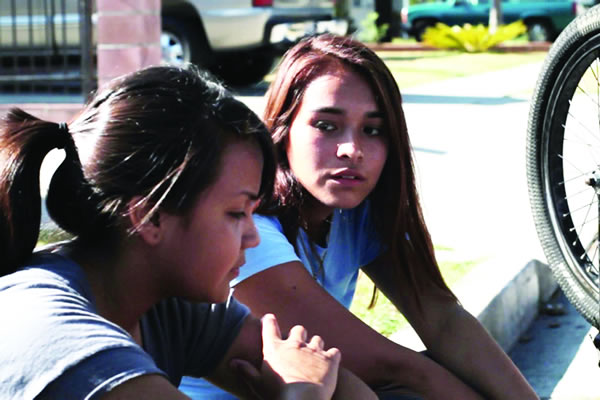 Written and directed by lesbian filmmaker Aurora Guerrero, “Mosquita y Mari” isn’t the usual coming-of-age story. Set against the gritty backdrop of Huntington Park, a working class Chicano neighborhood in Southeast Los Angeles, this heartening festival favorite portrays the tender friendship of teenage Latina classmates as they navigate adolescent confusion and family pressures to create an emotional refuge where they can be themselves.
Written and directed by lesbian filmmaker Aurora Guerrero, “Mosquita y Mari” isn’t the usual coming-of-age story. Set against the gritty backdrop of Huntington Park, a working class Chicano neighborhood in Southeast Los Angeles, this heartening festival favorite portrays the tender friendship of teenage Latina classmates as they navigate adolescent confusion and family pressures to create an emotional refuge where they can be themselves.
Though very different, the girls — Yolanda and Mari, played by Fenessa Pineda and Venecia Troncoso — are both typical of their community. Yolanda, a promising student and good girl, is the hope of her struggling parents’ ambition, their American dream. Her mother warns her to concentrate on school, saying, “I’m not busting my ass all day so you can throw it all away.”
Mari, on the other hand, smokes weed, shoplifts, and, though smart, pulls lousy grades. But she also works hard handing out fliers on Huntington Park’s busy main drag to help pay her undocumented family’s overdue bills. But interestingly, it’s shy but determined Yolanda who doggedly strives to make a connection when bad girl beauty Mari moves in across the street, and not the other way around.
Mari nicknames Yolanda “Mosquita” (“little fly” in Spanish). Initially it’s as a comment on her new acquaintance’s peskiness; but as the girls become friends the derisive tag changes into a term of endearment. They begin meeting after school in an abandoned body shop where they share confidences and Yolanda helps Mari with her homework. Rather rapidly, a mostly chaste romantic relationship develops.
A first time feature film director, Guerrero is a subtle but powerful storyteller. Her screenplay is based on her own life experiences. And even though the tale’s events aren’t particularly extraordinary, it feels completely unlike other films based on young gay love. Guerrero combines simplicity with authenticity to deliver something both searing and quietly touching.
Most of the characters are bilingual, switching fluidly from English to Spanish (Spanish dialogue is subtitled in English) depending on time and place; the film’s gorgeous Spanish language soundtrack and its location with bodegas, quinceañera shops, and lively street life reinforce the cultural connection. Pineda and Troncoso turn in astonishingly natural performances as the smitten teenagers.
While nothing about “Mosquita y Mari” is tied up neatly with a bow, it does end on a hopeful note. (PF)
‘Carl(a)’
Saturday, 5 p.m.
Goethe
 Will she or won’t she? When male-to-female pre-op transsexual Carla unexpectedly receives a surprisingly large inheritance from her grandfather, she can finally afford the gender reassignment surgery she’s always wanted. To move forward seems a no brainer. But like everything in Carla’s life, nothing is that simple.
Will she or won’t she? When male-to-female pre-op transsexual Carla unexpectedly receives a surprisingly large inheritance from her grandfather, she can finally afford the gender reassignment surgery she’s always wanted. To move forward seems a no brainer. But like everything in Carla’s life, nothing is that simple.
After a long losing streak with men, Carla (transgender actress Joslyn DeFreece) is enjoying a new and promising relationship, and therein lies the rub: Carla’s boyfriend Sam, a kindhearted, socially awkward nerd played by Gregg Bello, loves his transgender girlfriend just the way she is (anatomy and all). In fact, Sam is so opposed to Carla pursuing her life’s dream that he threatens to leave her should she go under the knife.
Carla loves Sam too, and truly wants to keep him in her life. Then again, she didn’t get this far on her journey toward claiming a true identity by doing what other people wanted.
When we first meet Carla, she is living alone, grappling with the problems that face a lot of transgender people: employment challenges, harassment and some family rejection (her parents and brother are openly hostile to her decision to transition). Fortunately, Carla finds a haven in both her understanding grandfather (feature film veteran Mark Margolis) and best pal Cinnamon (Laverne Cox), a feisty transgender streetwalker. (Cox garnered some fame a few years back as the first African-American transgender woman to appear on an American reality show when she was featured as a finalist on VH1′s “I Want to Work for Diddy.”)
Rather abruptly, Carla’s situation dramatically changes. How she deals with the newness of her life is what makes this film interesting. Directed by Eli Hershko, “Carl(a),” feels part love story, part “After School Special” for grownups, and a little P.S.A. (public service announcement). What could be too preachy is saved by leading lady DeFreece. Using her real life personal story and a light touch, DeFreece succeeds in both giving a terrifically honest performance and further acquainting audiences with the transgender experience. (PF)
‘Mixed Kebab’
Saturday, 7 p.m.
Goethe
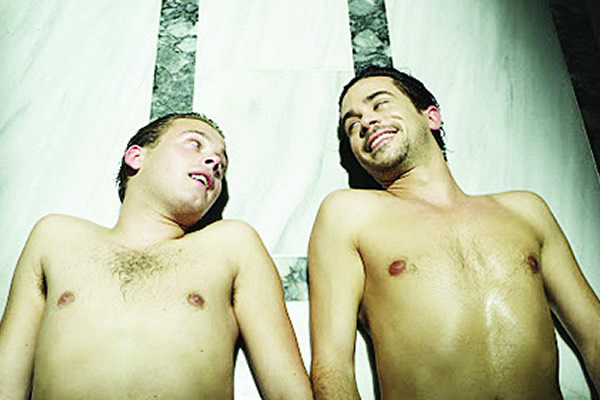 Coming out to your family can be disastrous, especially if your brother is psychotic.
Coming out to your family can be disastrous, especially if your brother is psychotic.
“Mixed Kebab” is a feature film written and directed by Guy Lee Thys. It stars Cem Akkanat as Bram and Simon Van Buyten as Kevin. The film explores the clash of religion and sexuality in an international setting.
Set in Belgium, Bram’s family arranged for him to marry his cousin Elif. Bram, however, secretly begins dating Kevin. Elif discovers this, but is determined to move to Belgium, live comfortably and marry Bram anyway. Bram’s brother Furkan joins an Islamic fundamentalist group with connections to the Taliban.
Furkan discovers Bram’s affair and exposes him to his family, who disown him when he refuses to marry Elif. Word of their son’s homosexuality spreads around the community and Bram’s parents are ostracized by those around them. In an attempt to redeem his family’s honor, Furkan plans to kill Kevin. Eventually, Bram is faced with a choice between his family and the love of his life.
The film is in about a half-dozen languages, making it difficult to follow at times, but many young gays and lesbians can relate to the choices Bram is constantly faced with. He must weigh his family’s expectations of him with what he wants and every decision he makes throughout the film hurts someone else in his life.
Parts of the plot make little sense, such as why Bram would bring Kevin with him on his trip to Turkey to meet Elif. However Akkanat and Van Buyten have great chemistry as a couple and carry the movie with the evolution of their relationship. (SMH)
‘Welcome to New York’
Saturday, 9 p.m.
Shown in a double bill with ‘Gayby’ (see below)
Goethe
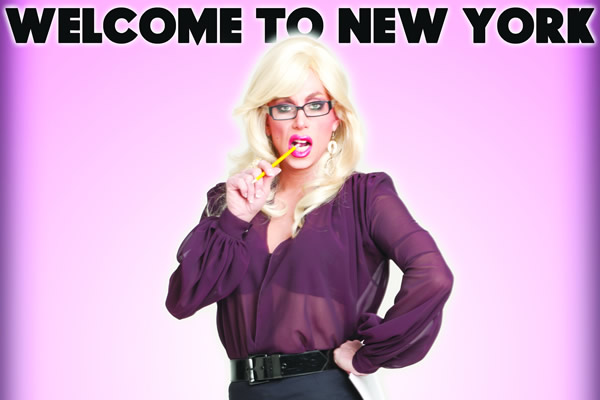 “Welcome to New York” is campy fun that plays like a pilot for a TV show that would air on the LOGO network and would fit right in with same audience that watches “RuPaul’s Drag Race.”
“Welcome to New York” is campy fun that plays like a pilot for a TV show that would air on the LOGO network and would fit right in with same audience that watches “RuPaul’s Drag Race.”
Famed drag queen Sherry Vine stars in this short film as Dr. Kitty Rosenblatt, a therapist to a bunch of whiny, young Big Apple newbies whose comedic stories of love in the city unravel during their separate therapy sessions. The amateur acting is redeemed by amusing situations. One segment has a drag queen telling Dr. Rosenblatt that she “did the nasty … with her face on,” while another centers around a character who cannot remember the name of his date. Perhaps you’ve been there?
In all, there are five stories. Though it’s only 30 minutes long, it feels as though it covers a lot of ground and leaves you wanting another episode. (RB)
‘Gayby’
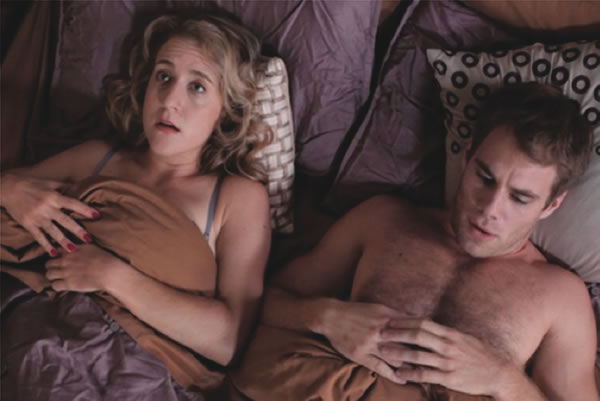 The plot of “Gayby” treads familiar ground. Despite an awkward one-night stand, college friends Jenn (straight) and Matt (gay) have remained BFFs. Now single and in their 30s, they decide to have a baby. A variety of hilarious hijinks and complicated emotions ensue, starting with Jenn’s decision that she wants to conceive “the old-fashioned way” (for no apparent reason other than the comic possibilities) and ending with the challenges of juggling baby care schedules.
The plot of “Gayby” treads familiar ground. Despite an awkward one-night stand, college friends Jenn (straight) and Matt (gay) have remained BFFs. Now single and in their 30s, they decide to have a baby. A variety of hilarious hijinks and complicated emotions ensue, starting with Jenn’s decision that she wants to conceive “the old-fashioned way” (for no apparent reason other than the comic possibilities) and ending with the challenges of juggling baby care schedules.
Fortunately, this familiar territory is freshened by a lively supporting cast, most notably Jonathan Lisecki as Matt’s flamboyant friend Nelson. Striking out on the dating scene, Nelson has recast himself as a bear, complete with a full beard, a new screen name (NellieBear8 — you can guess what the 8 stands for) and a delightfully fey growl. Beyond providing comic relief, Nelson also helps the plot lurch forward introducing Matt to online dating, teaching Matt and Jenn how to use a syringe when the “old-fashioned way” doesn’t work out, counseling Jenn through her “break-up” with Matt, and still finding time to find a boyfriend of his own.
Unfortunately, Lisecki’s work as writer and director is less assured than his work as actor. The feature-length version of “Gayby” started life as a 2010 short (a two-hander starring Jenn Harris and Matthew Wilkas, who also star in the full-length version) and the strain of expanding the material shows. The story meanders and the plot twists sometimes seem arbitrary. The tone is also uncertain; sometimes it’s not clear whether scenes are supposed to be comic or serious. The writing, however, is sharp, fast and furious; the zingers fly by quickly and enjoyably.
While the supporting cast is strong, Jenn Harris and Matt Wilkas are somewhat bland as the leads, a problem that is highlighted by the fact that both characters are just drifting through life. Jenn is a yoga instructor who is underappreciated by her boss. Matt works at a comic book store, blocked at working on his own comics and still not over his ex-boyfriend Tom. Harris has exquisite comic timing, but not enough opportunities for banter or physical comedy.
Their blandness is offset by the strong supporting cast and the witty writing, but Lisecki ultimately fails to bring the complex central relationship to life. He’s not alone on this. The same problem has plagued movies like “The Object of My Affection” and “The Next Best Thing” and TV shows like “Will & Grace.” It’s never easy for a gay guy and his straight gal pal.
Nonetheless, there are lots of laughs in Gayby, even if the whole is less than the sum of its parts. (BTC)
‘I Want Your Love’
Saturday, 11 p.m.
Goethe
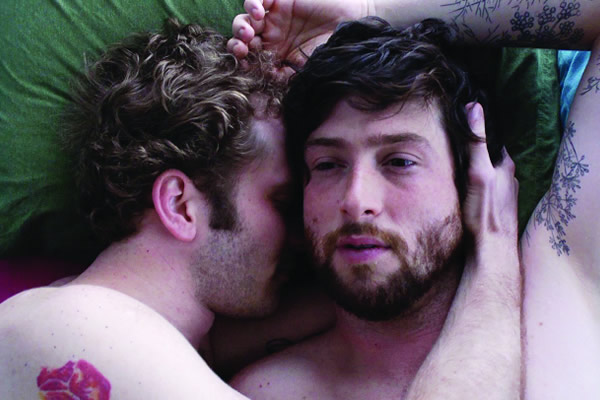 Following in the tradition of “Shortbus” (which showed real people having real sex in a variety of situations), “I Want Your Love” tells the story of eight gay men in San Francisco in explicit and searing detail. Over the course of 48 hours, the men test the boundaries of their relationships and stumble through decisions large and small.
Following in the tradition of “Shortbus” (which showed real people having real sex in a variety of situations), “I Want Your Love” tells the story of eight gay men in San Francisco in explicit and searing detail. Over the course of 48 hours, the men test the boundaries of their relationships and stumble through decisions large and small.
The central character is Jesse (Jesse Metzger), a 30-something performance artist. Still licking the wounds from his break-up, short on cash, creatively blocked and unable to get a foothold in San Francisco’s art scene, Jesse has decided to return to his family home in Ohio. (The trendy urbanites keep referring to the entire state and not Jesse’s hometown of Columbus.)
As Jesse prepares to leave the city, he says goodbye to his friends while avoiding his actual farewell party. He also avoids phone calls from his anxious family while finally settling emotional scores with his ex-boyfriend Ben (Ben Jasper) and Keith (Keith McDonald), his downstairs neighbor and a successful artist. In the meantime, his hairy hipster roommate uneasily prepares to move his younger boyfriend into the apartment and Jesse’s friend Brontez rekindles his acquaintance with Ben.
“I Want Your Love” is the first feature-length film by writer/director Travis Mathews, known for his series “In Their Room,” which documents what goes on in the bedrooms of gay men around the world. He also made the short film of the same title (2010), which also featured Metzger, but in a different scenario.
Mathews has degrees in both documentary filmmaking and counseling psychology and he puts them to excellent use here. The realistic dialogue and naturalistic camerawork beautifully capture the look and feel of contemporary San Francisco. The narrative is fleshed out (quite literally) by sexual encounters between the men. Although we see lots of body parts and bodily fluids, and although the film was produced by adult film distributor Naked Sword, this movie is hardly your standard porn flick.
The intimate physical contact details the relationships between the characters in fascinating ways and touch is often a more effective means of communication (between characters and between the film and the audience) than words.
The graphic nature of “I Want Your Love” may not be for all tastes, but it offers intriguing insights into the many ways gay men connect with each other. (BTC)
‘Entry Denied’
Shown in a double bill with ‘The Queen Has No Crown’ (see below)
Sunday, 11 a.m.
Carnegie
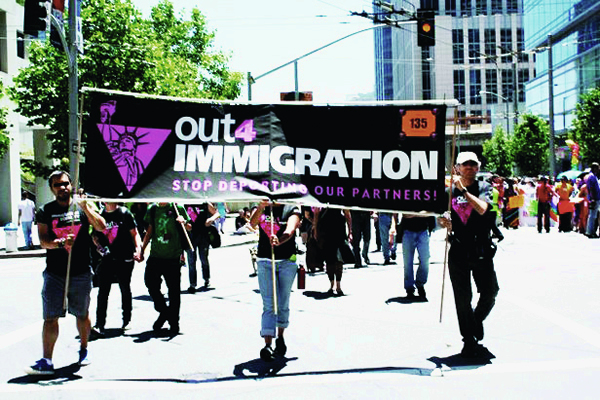 The stories of three same-sex international couples are explored in this short about the strict and unfair U.S. immigration policies gay couples face.
The stories of three same-sex international couples are explored in this short about the strict and unfair U.S. immigration policies gay couples face.
Seeing the personal stories of those affected shows just how hard these couples struggle to stay together while risking deportation when one is not a U.S. citizen.
For one couple, things are further complicated by an HIV diagnosis. Up until 2010 an HIV ban restricted any travel or immigration into the U.S. by those infected. Another couple makes the decision to move out of the U.S. altogether and find solace in Canada, which accepts the immigration of gay couples. Each story is both sad and frustrating, but sheds light on this tragic situation. It’s clear the goals of the filmmakers were to raise awareness on this issue and they succeed. (RB)
‘The Queen Has No Crown’
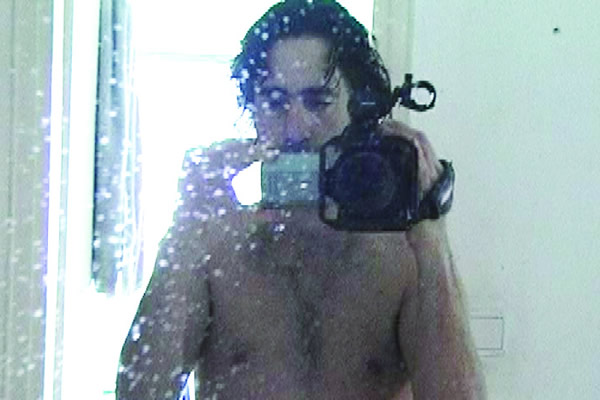 An Israeli man documents life with his parents, siblings, nieces and nephews and their views on his sexuality, but his emotionally dependent mother is the main focus.
An Israeli man documents life with his parents, siblings, nieces and nephews and their views on his sexuality, but his emotionally dependent mother is the main focus.
“The Queen Has No Crown” is a bio-documentary from Tomer Heymann that combines home movies with his own footage of his family and friends. He asks them about their lives, their thoughts on his homosexuality and his relationships. Through the years, his parents divorce and three of his four siblings move from Israel to America, much to his mother’s chagrin.
His mother looks back on her life, everything she missed out on and the growing divide between her and her state-side sons. While she believes they should all stay in Israel, Tomer tries to reason with her, saying they are happy in America and she should be happy for them. Meanwhile, Tomer pours his energy into his relationship with Erez, whom he wants to marry. Erez leaves Tomer who delves into the local gay community and its nightlife, despite harsh anti-gay protests.
The film was shot by Heymann with a handheld camera over the course of 10 years and features a cringe-worthy conversation between Tomer and his twin, also named Erez, about how Tomer is selfish for being gay and not reproducing.
Every frame of the film is worth seeing. The ending does leave something to be desired in terms of a resolution but does a wonderful job highlighting Tomer’s mother’s disappointment in how her son sees her. (SMH)
‘Trans’
Shown in a double bill with ‘Mathi(eu)’ (see below)
Sunday, 1 p.m.
Carnegie
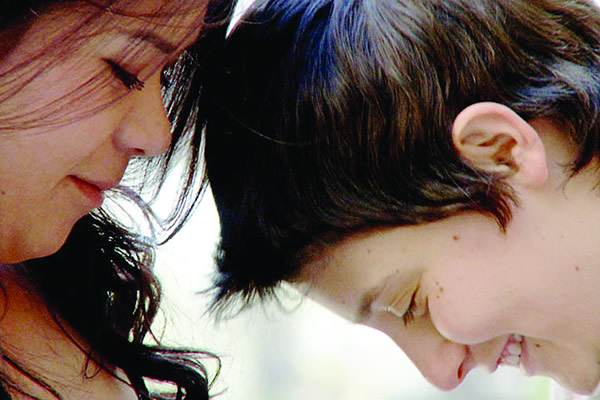 Flawed yet fascinating, “Trans” is a 96-minute documentary that shares a wide variety of transgender experiences — everything from a young child born male who insists she’s a girl to her remarkably accommodating parents, to a trans surgeon overachiever who manages to conceive twins with her partner, to two middle-aged trans women who transition later in life to the sad story of Justin/Chloe, a California teen who commits suicide overwhelmed by what she felt were a lack of options.
Flawed yet fascinating, “Trans” is a 96-minute documentary that shares a wide variety of transgender experiences — everything from a young child born male who insists she’s a girl to her remarkably accommodating parents, to a trans surgeon overachiever who manages to conceive twins with her partner, to two middle-aged trans women who transition later in life to the sad story of Justin/Chloe, a California teen who commits suicide overwhelmed by what she felt were a lack of options.
While always interesting and touching, “Trans” for many LGBT viewers will feel a bit tired. That’s not a slight at all at the subjects — their stories are always engrossing. But trans issues, thankfully, are integrated enough into LGBT U.S. culture to the point that, by now, viewers, especially at an LGBT film festival, don’t really need first-hand tutorials on what it means to be trans or how these realizations come about. Most of us, again thankfully, get it — trans folks feel trapped in the wrong biological body, it’s really not an esoteric concept. So while there’s a large degree of a “preaching-to-the-choir” feel to this, if straights would give it the time of day, it would likely find a more appropriate audience.
And while its intentions are always noble — one can’t help but tear up at several of the personal accounts — director Chris Arnold often takes a disappointingly hammy approach. Arnold successfully gets a camera present for key moments in several lives — two women being wheeled into the operating room for gender reassignment surgery, a young man telling his girlfriend he’s more trans than lesbian and the surgeon’s wife giving birth. But just as often, things get melodramatic — a graphic saying “surgery” flashes while ominous-sounding cellos thud out scary chords. Other key moments meant to be narrative surprises can be detected a mile away. And did we really need to see one man’s removed testicles being placed in a vial? D.C. trans activist Earline Budd makes a brief appearance.
The film ultimately works, though, as the power of the individual stories manages to overpower Arnold’s hardworking-yet-melodramatic approach. And, as always, the stories are what make the issues come to life and resonate. (JD)
‘Mathi(eu)’
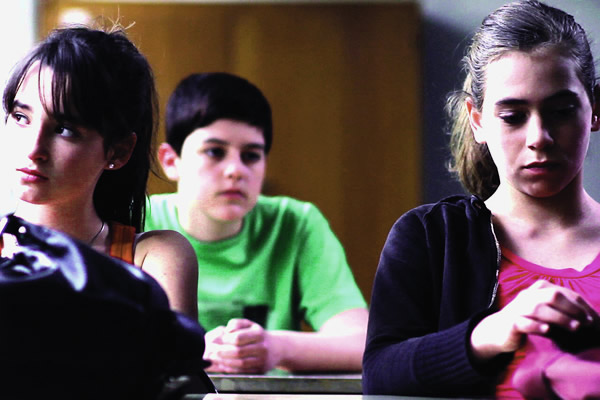 A young transgender student struggles to find love and yearns for people to see him as he sees himself.
A young transgender student struggles to find love and yearns for people to see him as he sees himself.
“Mathi(eu)” tells the story of Mathilde (Tomy Kleinermanns), who prefers to go by Mathieu while undergoing hormone treatment to transition to a man. He dreams of undergoing gender reassignment surgery but laments to his accepting mother that he’ll never be able to impregnate his future wife. She assures him his life will get better. Her role is minimal, but it’s clear she is a wonderful support system for Mathieu.
Mathieu develops a relationship with fellow student Laure (Valentine Feral), who is initially hesitant, saying she doesn’t date women. Soon enough, she begins seeing Mathieu as a man and the two grow close. However, her homophobic friend disapproves and threatens violence against Mathieu.
A touching scene early in their courtship shows Mathieu serenading Laure on the piano with a beautiful rendition of Edith Piaf’s “La Vie en Rose.” Laure joins in despite her initial reluctance to sing. They share their present worries and their hopes for the future. Their budding romance is cute, but doomed.
The film is just under 19 minutes long and entirely in French. It accurately depicts the struggles of a bullied teenager trying to understand his body and future. Laure herself struggles to understand Mathieu. The characters’ choices are believable and the Kleinermanns gives a brilliant performance as Mathieu from the first scene to his last glare. The movie is a must-see. (SMH)
‘Stud Life’
Sunday, 3 p.m.
Carnegie
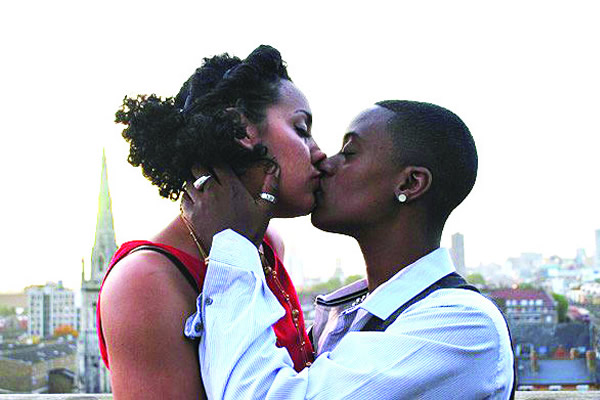 Balancing relationships and friendships is tough when your girlfriend and best friend don’t get along.
Balancing relationships and friendships is tough when your girlfriend and best friend don’t get along.
“Stud Life,” a British film starring T’Nia Miller and Kyle Treslove, depicts a challenge many relationships face, but in the context of a same-sex couple. JJ (T’Nia Miller) begins dating Elle (Robyn Kerr), which puts a strain on her friendship with Seb (Kyle Treslove), leading to several fights and break-ups.
While many conflicts in the film are dependent on the characters’ sexualities, including arguments about femme and butch lesbians, anyone can relate to the dynamic of JJ and Elle’s relationship in the first half of the film. JJ struggles, with little success, to balance her commitments to her girlfriend and her best friend. The drama, however, becomes harder to relate to when it is revealed that Elle works as a dominatrix. This revelation angers JJ not because of the nature of the job itself, but because Elle’s clients are men, so they break up.
Meanwhile, Seb spends a significant amount of time cruising for men online, which leads to a nasty encounter between a trick’s foot and Seb’s stomach. Seb then immediately develops a relationship with Smack Jack (Simon Savory), a drug dealing college student. The whirlwind romance felt contrived and predictable, as Seb spent most of the movie spurning him. Also, Jack had the audacity to insult someone else’s taste in clothes, which is ridiculous considering that throughout the movie, he wears, exclusively, an all-white suit.
The dialogue is, at times, difficult to understand, given the quick exchanges and British colloquialisms, and some scenarios are implausible at best. However, the relationship dynamics are the highlight of the film. (SMH)
‘Bear City 2’
Sunday, 7 p.m.
(also Nov. 9 at 7 and 9 p.m.)
Carnegie
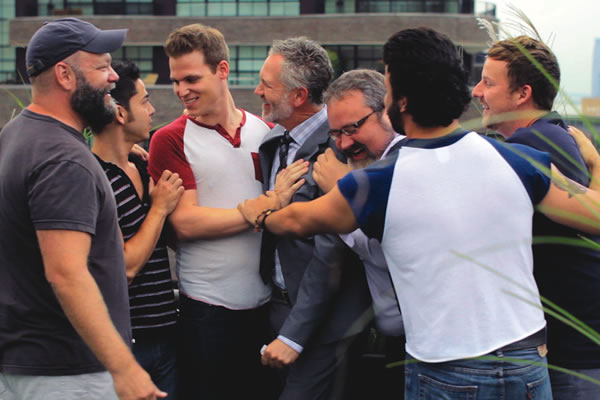 “Bear City 2” is a sequel to the popular “Bear City” (2010), a love story between Ty, a struggling actor and chaser, and Roger, a successful businessman who hangs out with the muscle bears (even though he’s not really a bear himself).
“Bear City 2” is a sequel to the popular “Bear City” (2010), a love story between Ty, a struggling actor and chaser, and Roger, a successful businessman who hangs out with the muscle bears (even though he’s not really a bear himself).
They’re surrounded by a circle of funny friends — neurotic unemployed Michael and his incredibly understanding lover Carlos, aspiring-but-unmotivated filmmaker Fred and his acerbic boyfriend Brent, and Simon, Ty’s twink friend who is confused but supportive when Ty “comes out” as a chaser.
“Bear City 2” starts out with a confusing prologue that includes cameos by Kevin Smith and Frank DeCaro and reintroduces the characters. It’s not clear how much time has elapsed between the movies. Somehow, Michael has acquired a Tony nomination and Carlos has bought a bar, and since marriage is now legal in New York, Roger has decided to propose to Ty. After a few moments of soul-searching, Ty says yes. The cast heads off to Provincetown for a Bear Week wedding.
Unfortunately, “Bear City 2” inherits some of the flaws of its predecessor and feels like it was rushed into production following the success of the first movie. Both are written and directed by Douglas Langway. The writing is frequently formulaic, relying on stock characters and situations, and the acting is uneven. There is a palpable lack of chemistry between Joe Conti and Gerald McCullouch as Ty and Roger. McCullouch is awkwardly miscast. His performance in both movies is dull and he’s not Ty’s type. Their physical mismatch does become an issue in the second movie, but it is hard to see why these two ever got together.
Despite these flaws, the film is clearly a labor of love for everyone involved and that passion shows in every frame. Partly financed by fans, their names and faces are shown in the credits and some appear as extras. And the movie is a joyous exploration and celebration of bear culture. It is wonderful (and unusual) to see guys with big bellies and fur portrayed as sexual objects. “Bear City 2” displays these bodies with pride, both in the principal cast and in crowd shots of bears on the beach. (BTC)
Movies
After 25 years, a forgotten queer classic reemerges in 4K glory
Screwball rom-com ‘I Think I Do’ finds new appreciation

In 2024, with queer-themed entertainment available on demand via any number of streaming services, it’s sometimes easy to forget that such content was once very hard to find.
It wasn’t all that long ago, really. Even in the post-Stonewall ‘70s and ‘80s, movies or shows – especially those in the mainstream – that dared to feature queer characters, much less tell their stories, were branded from the outset as “controversial.” It has been a difficult, winding road to bring on-screen queer storytelling into the light of day – despite the outrage and protest from bigots that, depressingly, still continues to rear its ugly head against any effort to normalize queer existence in the wider culture.
There’s still a long way to go, of course, but it’s important to acknowledge how far we’ve come – and to recognize the efforts of those who have fought against the tide to pave the way. After all, progress doesn’t happen in a vacuum, and if not for the queer artists who have hustled to bring their projects to fruition over the years, we would still be getting queer-coded characters as comedy relief or tragic victims from an industry bent on protecting its bottom line by playing to the middle, instead of the (mostly) authentic queer-friendly narratives that grace our screens today.
The list of such queer storytellers includes names that have become familiar over the years, pioneers of the “Queer New Wave” of the ‘90s like Todd Haynes, Gus Van Sant, Gregg Araki, or Bruce LaBruce, whose work at various levels of the indie and “underground” queer cinema movement attracted enough attention – and, inevitably, notoriety – to make at least their names familiar to most audiences within the community today.
But for every “Poison” or “The Living End” or “Hustler White,” there are dozens of other queer films from the era; mostly screened at LGBTQ film festivals like LA’s Outfest or San Francisco’s Frameline, they might have experienced a flurry of interest and the occasional accolade, or even a brief commercial release on a handful of screens, before slipping away into fading memory. In the days before streaming, the options were limited for such titles; home video distribution was a costly proposition, especially when there was no guarantee of a built-in audience, so most of them disappeared into a kind of cinematic limbo – from which, thankfully, they are beginning to be rediscovered.
Consider, for instance, “I Think I Do,” the 1998 screwball romantic comedy by writer/director Brian Sloan that was screened – in a newly restored 4K print undertaken by Strand Releasing – in Brooklyn as the Closing Night Selection of NewFest’s “Queering the Canon” series. It’s a film that features the late trans actor and activist Alexis Arquette in a starring, pre-transition role, as well as now-mature gay heartthrob Tuc Watkins and out queer actor Guillermo Diaz in supporting turns, but for over two decades has been considered as little more than a footnote in the filmographies of these and the other performers in its ensemble cast. It deserves to be seen as much more than that, and thanks to a resurgence of interest in the queer cinema renaissance from younger film buffs in the community, it’s finally getting that chance.
Set among a circle of friends and classmates at Washington, D.C.’s George Washington University, it’s a comedic – yet heartfelt and nuanced – story of love left unrequited and unresolved between two roommates, openly gay Bob (Arquette) and seemingly straight Brendan (Christian Maelen), whose relationship in college comes to an ugly and humiliating end at a Valentine’s Day party before graduation. A few years later, the gang is reunited for the wedding of Carol (Luna Lauren Vélez) and Matt (Jamie Harrold), who have been a couple since the old days. Bob, now a TV writer engaged to a handsome soap opera star (Watkins) is the “maid” of honor, while old gal pals Beth (Maddie Corman) and Sarah (Marianne Hagan), show up to fill out the bridal party and pursue their own romantic interests. When another old friend, Eric (Diaz), shows up with Brendan unexpectedly in tow, it sparks a behind-the-scenes scenario for the events of the wedding, in which Bob is once again thrust into his old crush’s orbit and confronted with lingering feelings that might put his current romance into question – especially since the years between appear to have led Brendan to a new understanding about his own sexuality.
In many ways, it’s a film with the unmistakable stamp of its time and provenance, a low-budget affair shot at least partly under borderline “guerilla filmmaking” conditions and marked by a certain “collegiate” sensibility that results in more than a few instances of overly clever dialogue and a storytelling agenda that is perhaps a bit too heavily packed. Yet at the same time, these rough edges give it a raw, DIY quality that not only makes any perceived sloppiness forgivable, but provides a kind of “outsider” vibe that it wears like a badge of honor. Add to this a collection of likable performances – including Arquette, in a winning turn that gets us easily invested in the story, and Maelen, whose DeNiro-ish looks and barely concealed sensitivity make him swoon-worthy while cementing the palpable chemistry between them – and Sloan’s 25-year-old blend of classic Hollywood rom-com and raunchy ‘90s sex farce reveals itself to be a charming, wiser-than-expected piece of entertainment, with an admirable amount of compassion and empathy for even its most stereotypical characters – like Watkins’ soap star, a walking trope of vainglorious celebrity made more fully human than appearances would suggest by the actor’s sensitive, emotionally intelligent performance – that leaves no doubt its heart is in the right place.
Sloan, remarking about it today, confirms that his intention was always to make a movie that was more than just frothy fluff. “While the film seems like a glossy rom-com, I always intended an underlying message about the gay couple being seen as equals to the straight couple getting married,” he says. “ And the movie is also set in Washington to underline the point.”
He also feels a sense of gratitude for what he calls an “increased interest from millennials and Gen Z in these [classic queer indie] films, many of which they are surprised to hear about from that time especially the comedies.” Indeed, it was a pair of screenings with Queer Cinema Archive that “garnered a lot of interest from their followers,” and “helped to convince my distributor to bring the film back” after being unavailable for almost 10 years.
Mostly, however, he says “I feel very lucky that I got to make this film at that time and be a part of that movement, which signaled a sea change in the way LGBTQ characters were portrayed on screen.”
Now, thanks to Strand’s new 4K restoration, which will be available for VOD streaming on Amazon and Apple starting April 19, his film is about to be accessible to perhaps a larger audience than ever before.
Hopefully, it will open the door for the reappearance of other iconic-but-obscure classics of its era and help make it possible for a whole new generation to discover them.
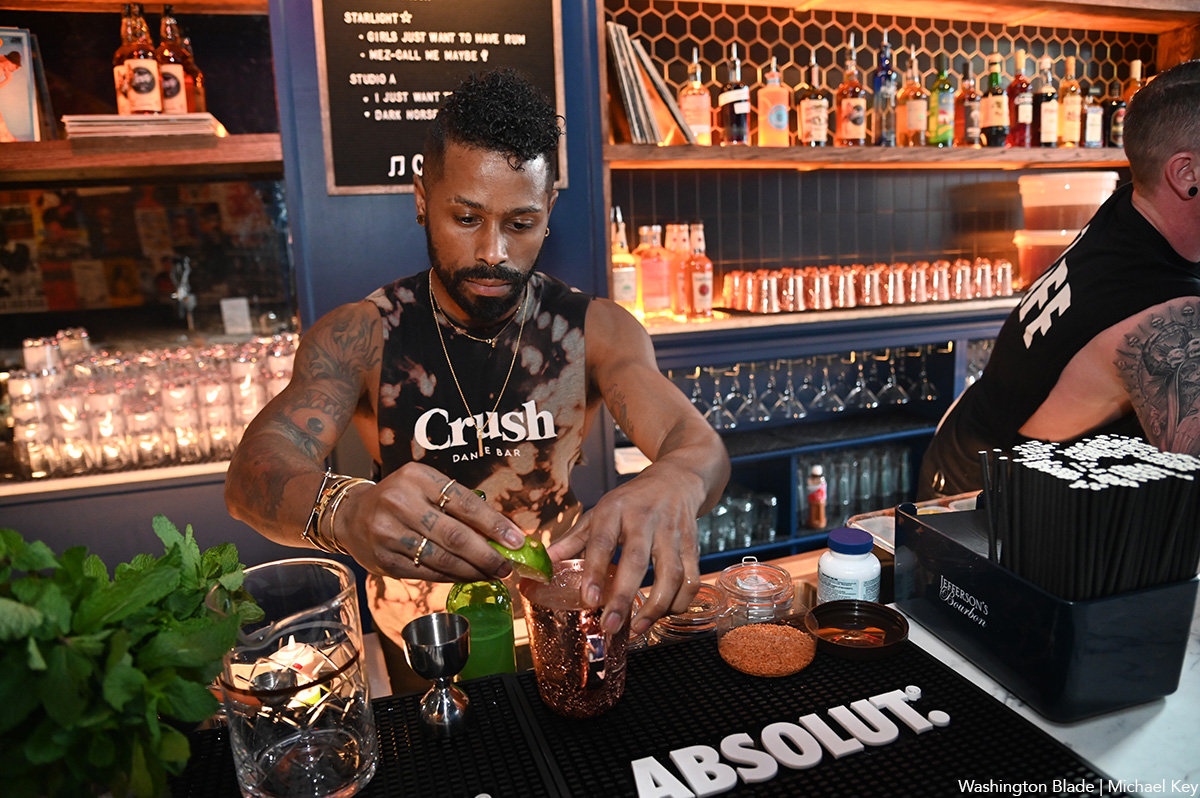
The new LGBTQ venue Crush held a party for friends, family and close supporters on Tuesday. For more information on future events at Crush, go to their Instagram page @crushbardc.
(Washington Blade photos by Michael Key)
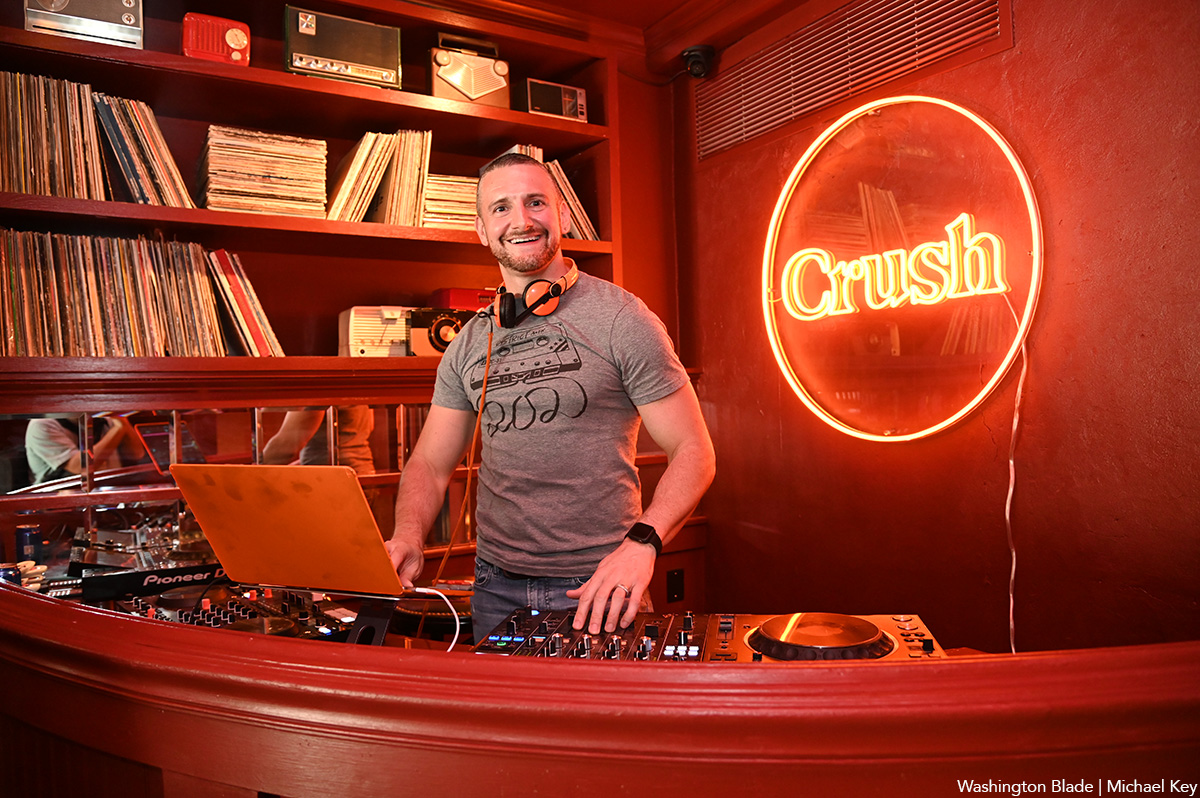
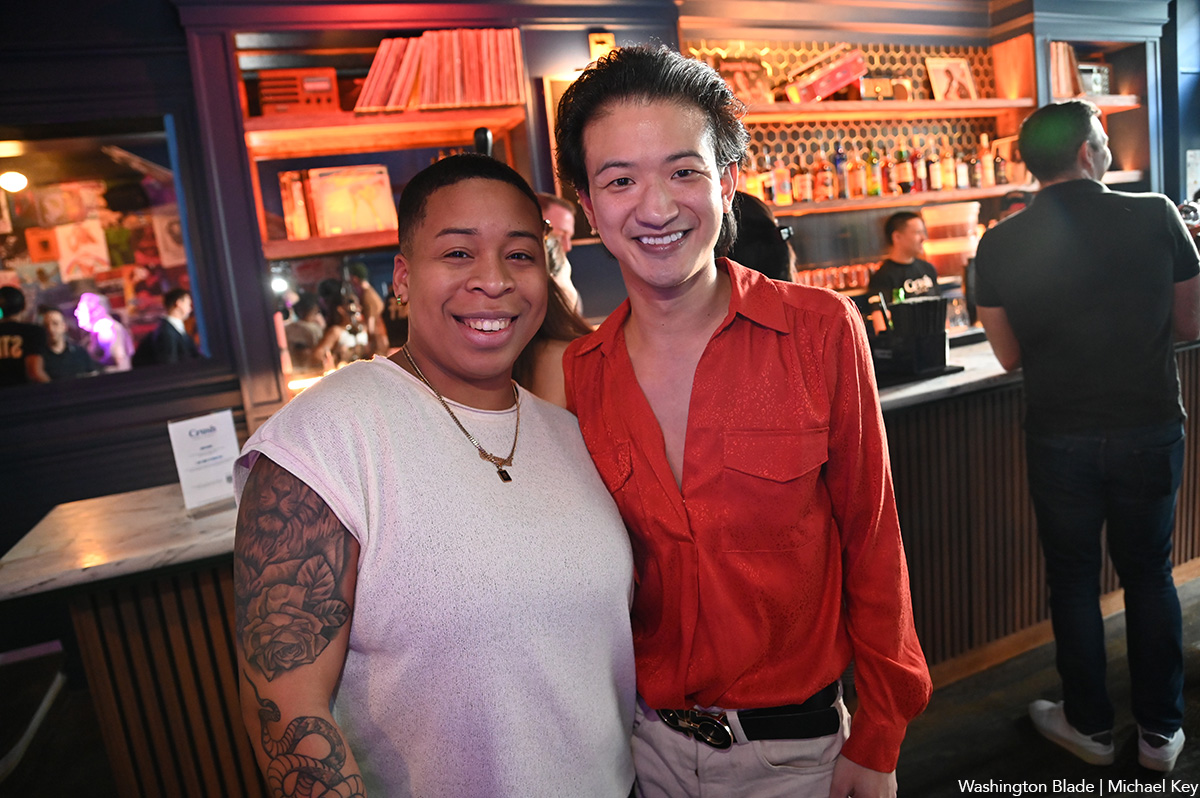
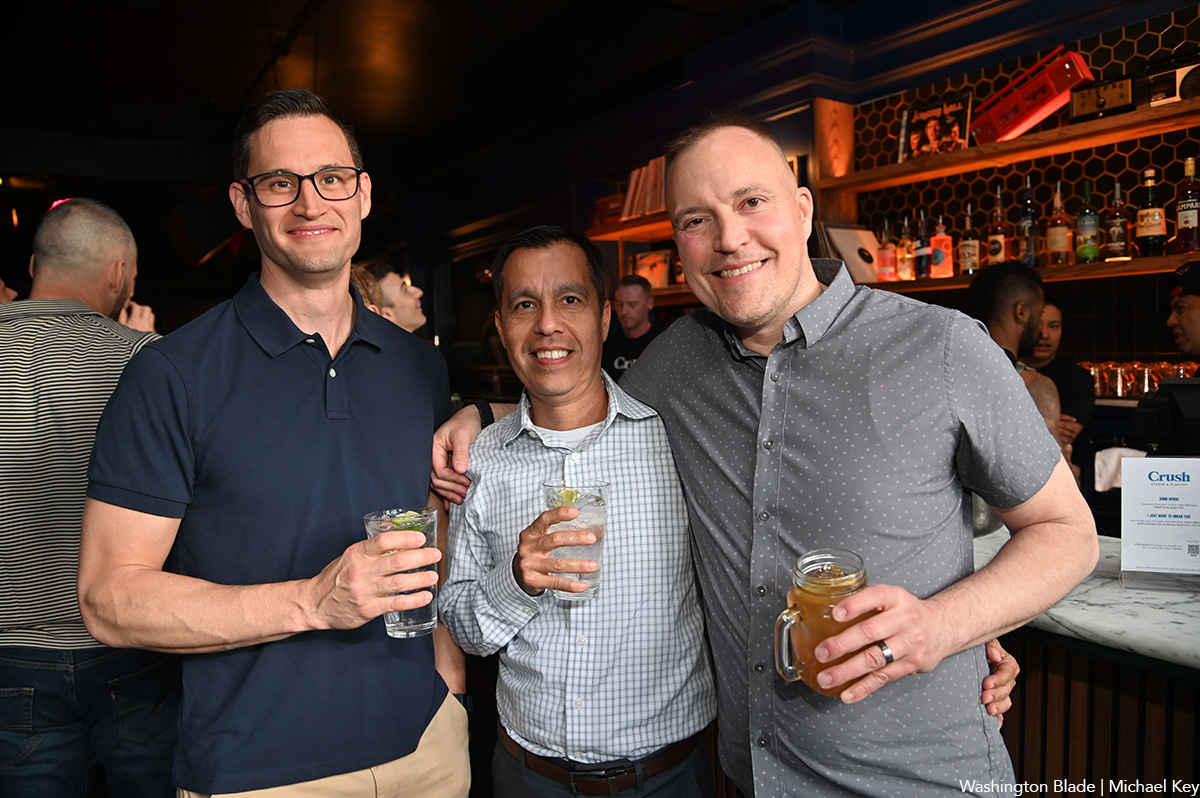
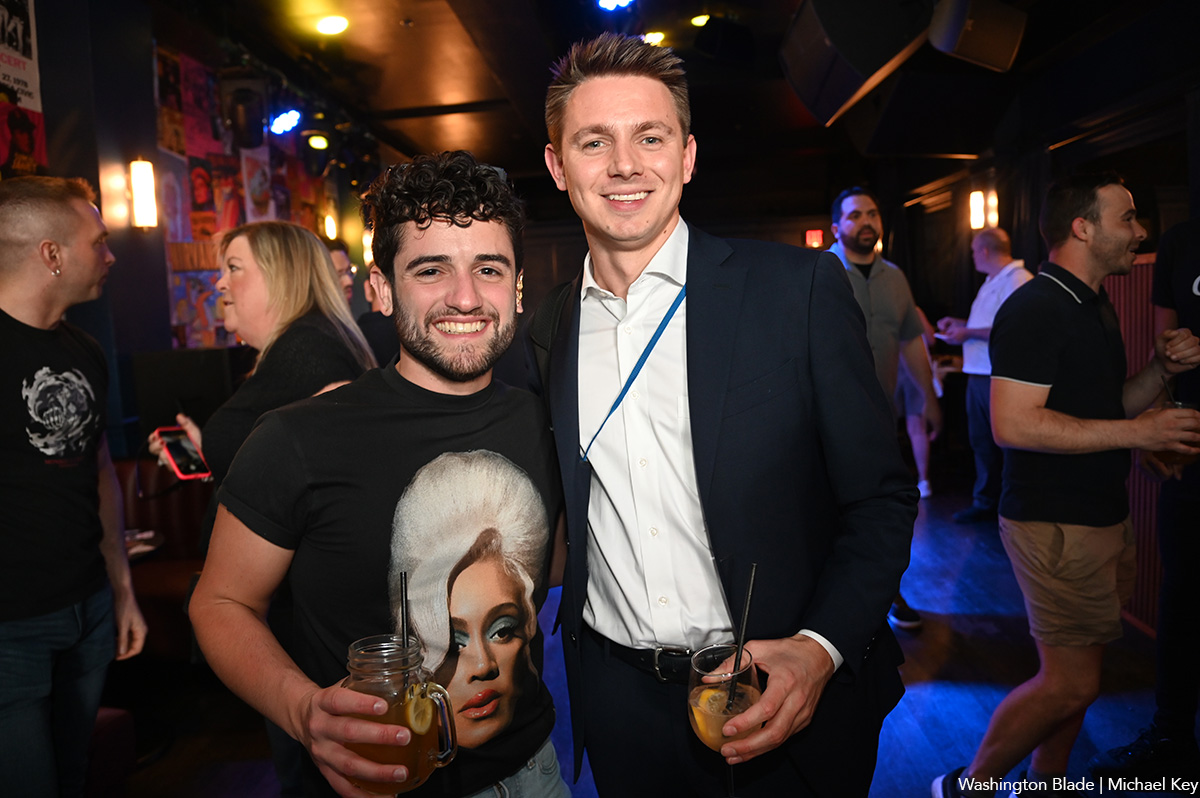

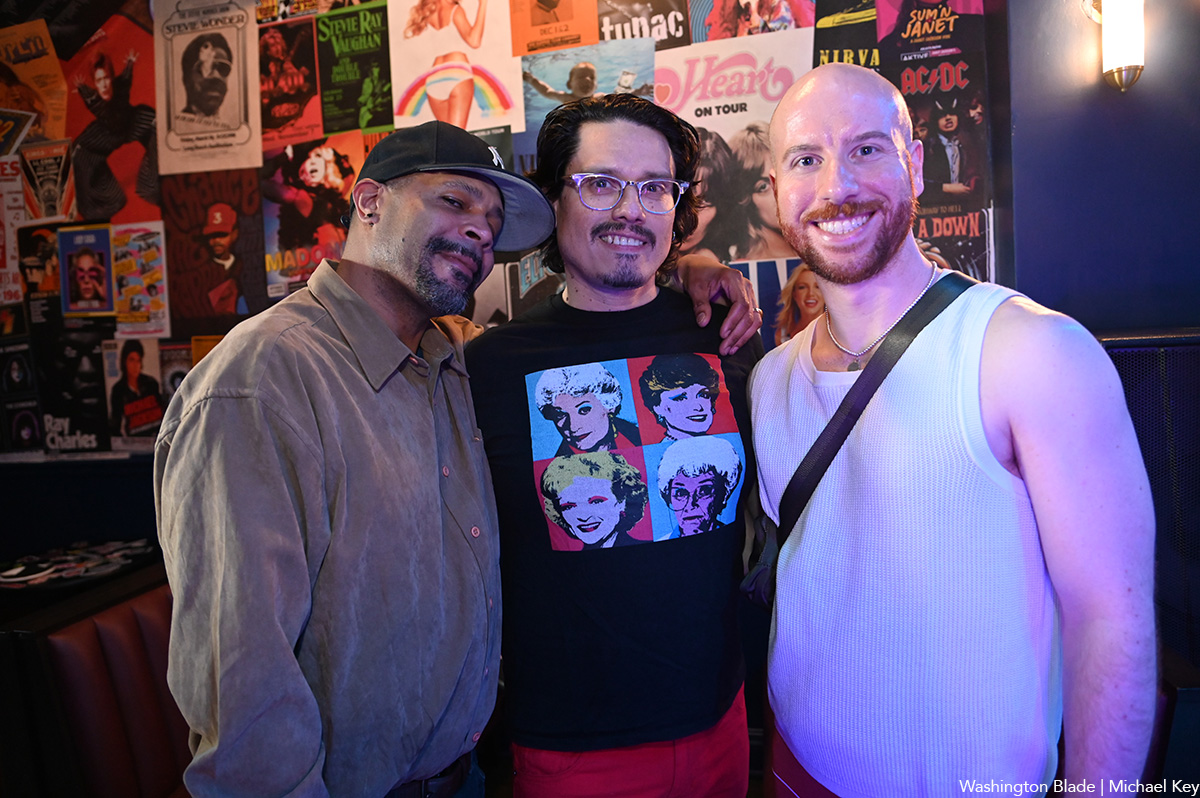
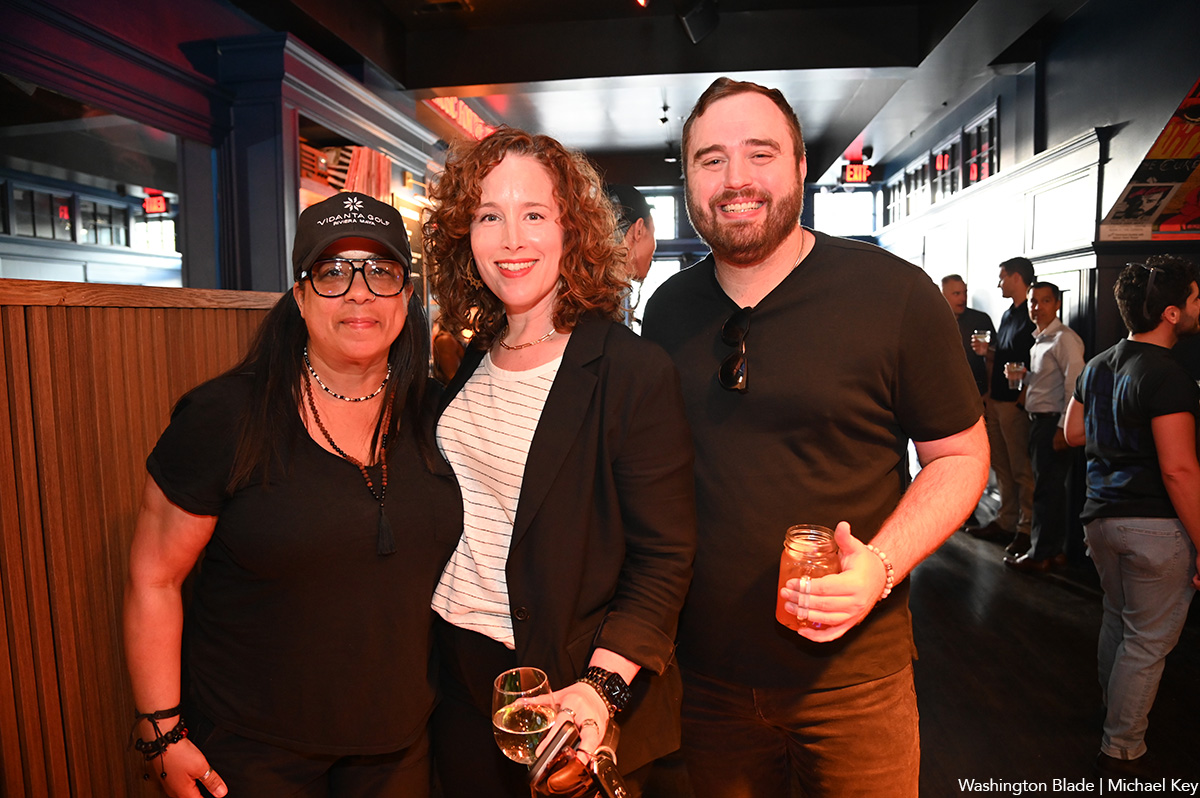
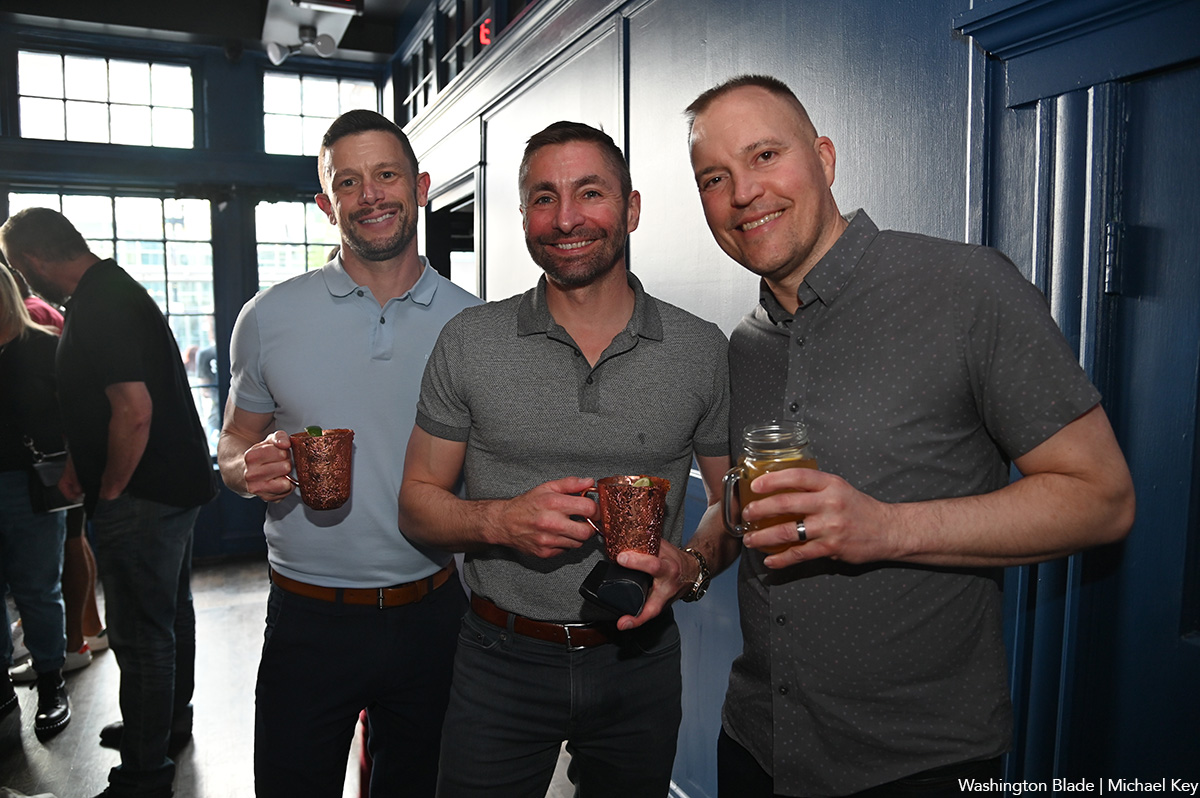

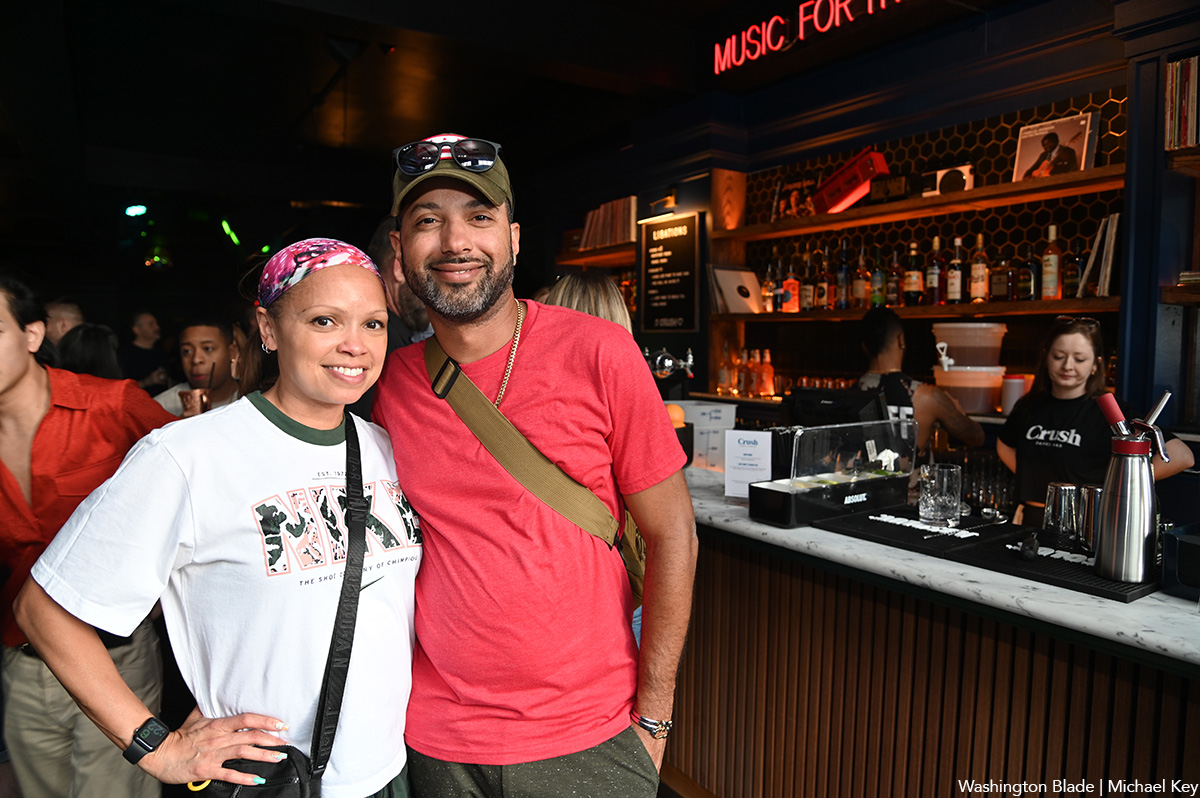
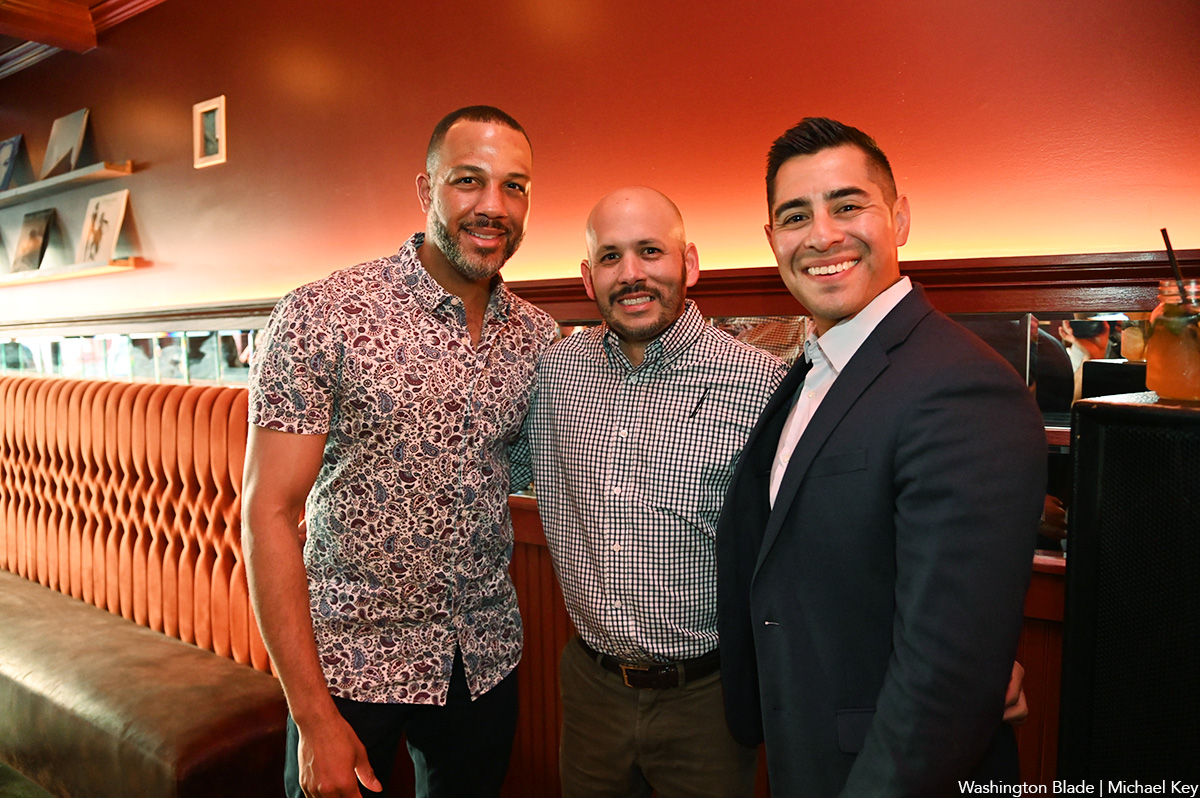
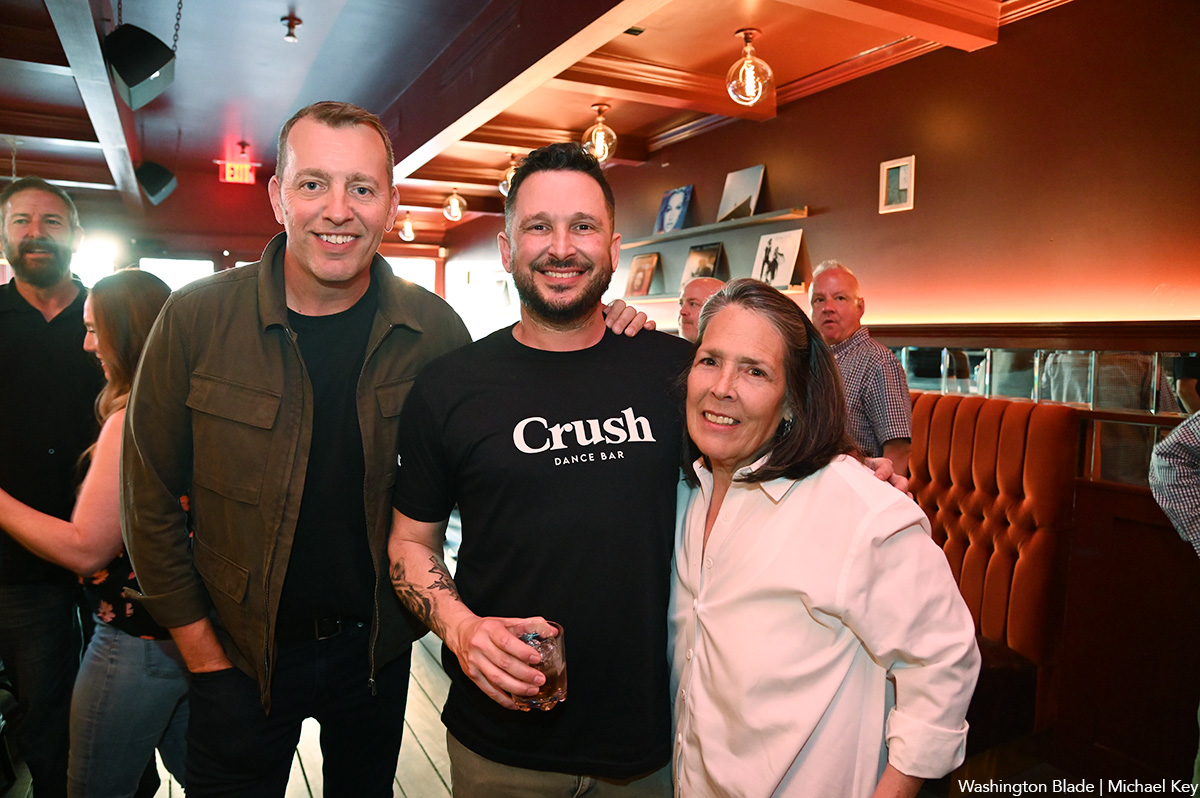

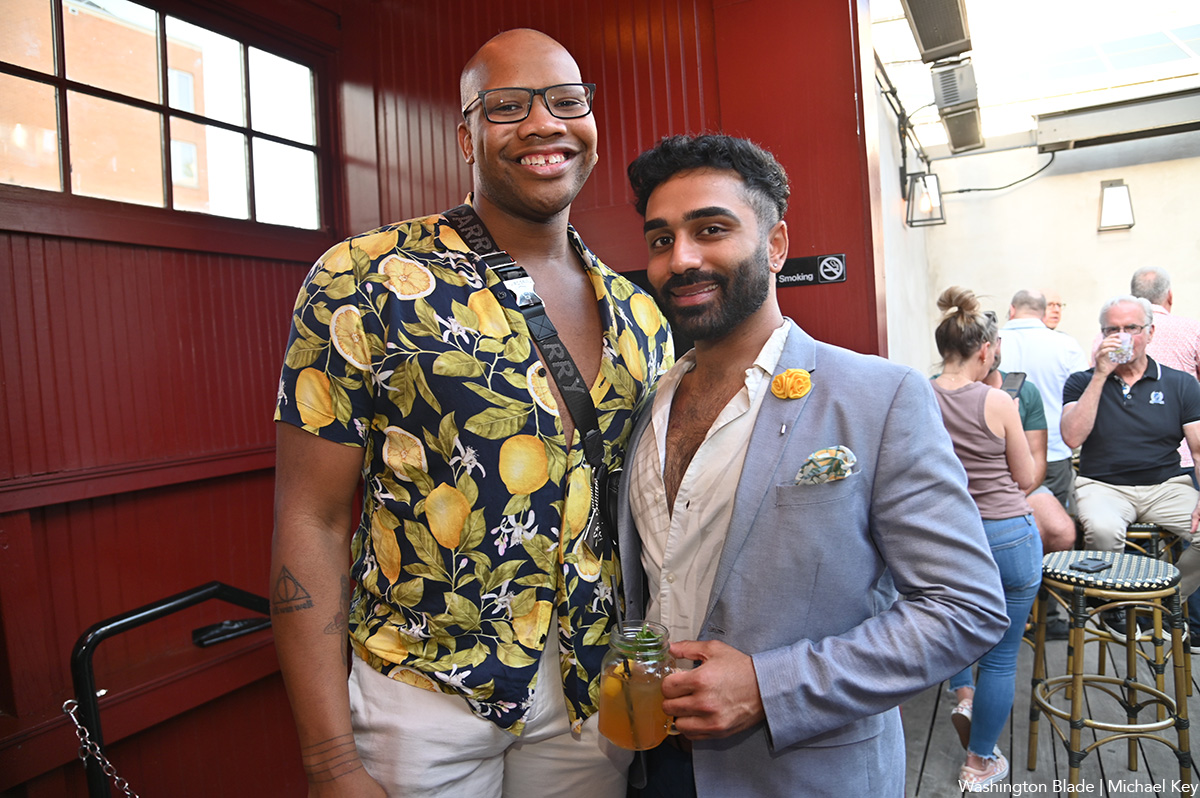
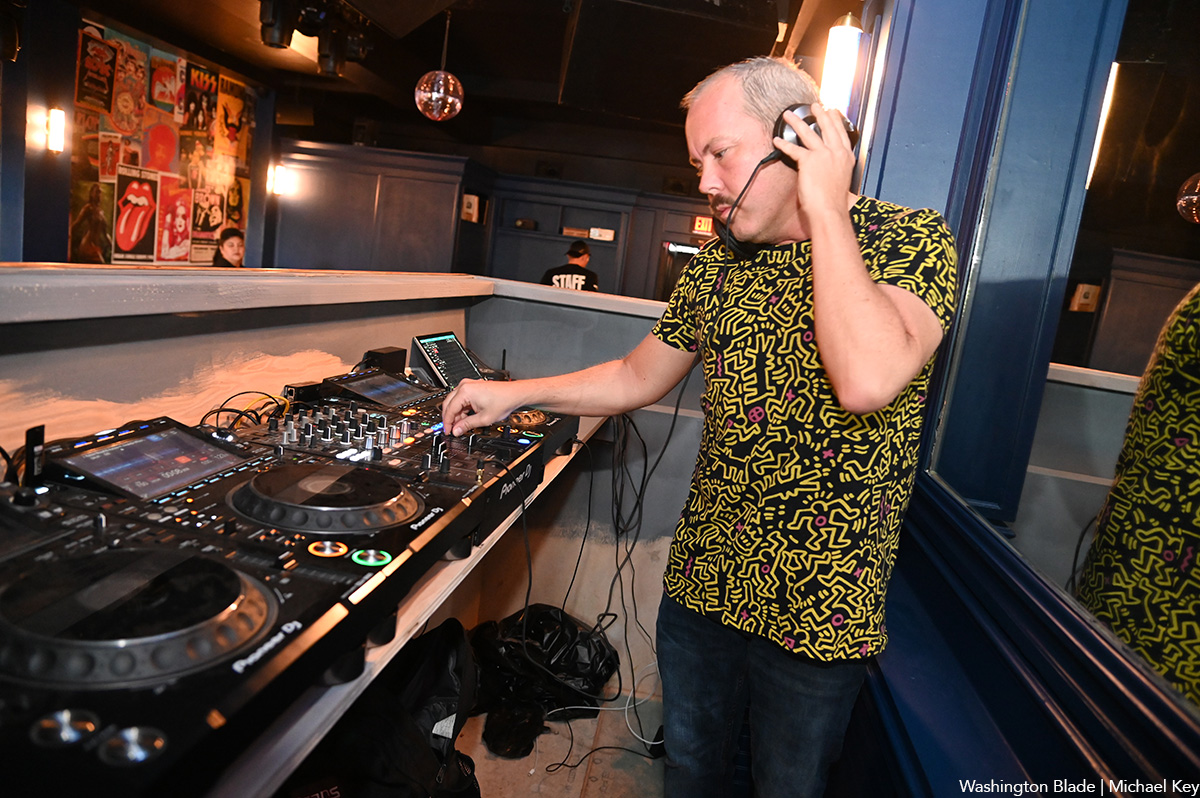
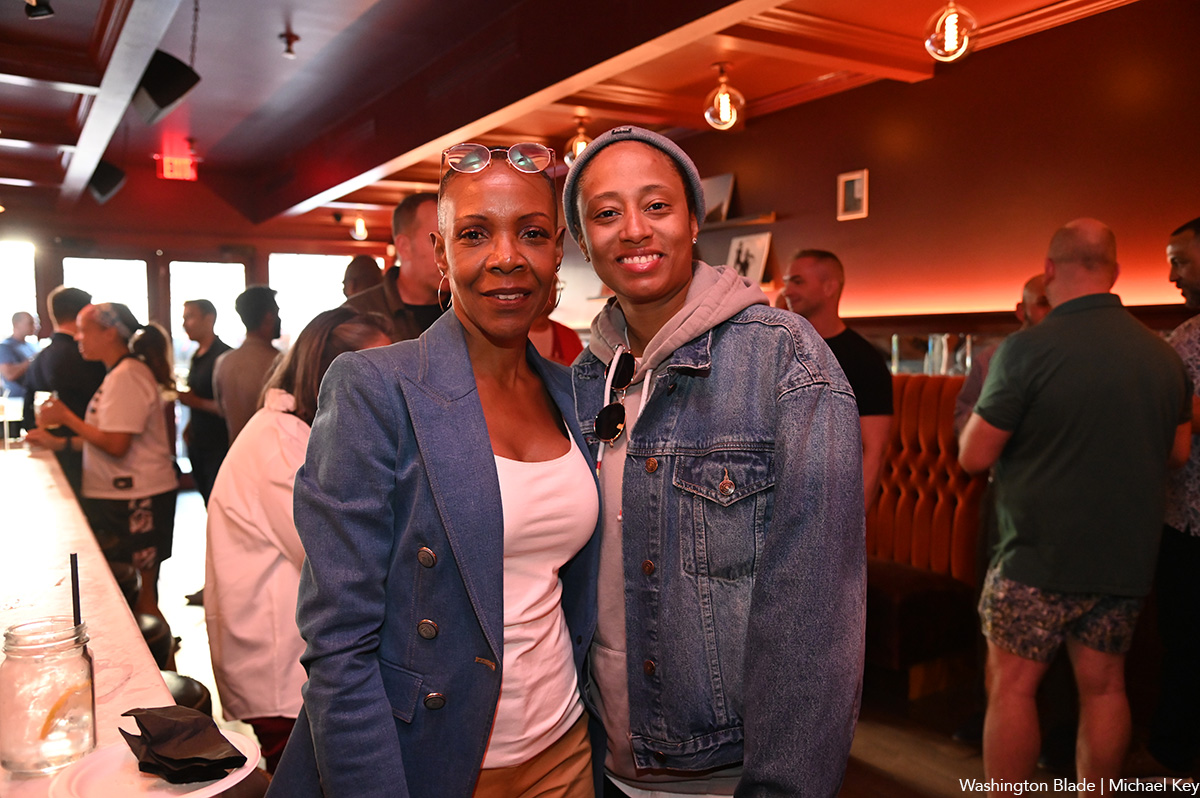
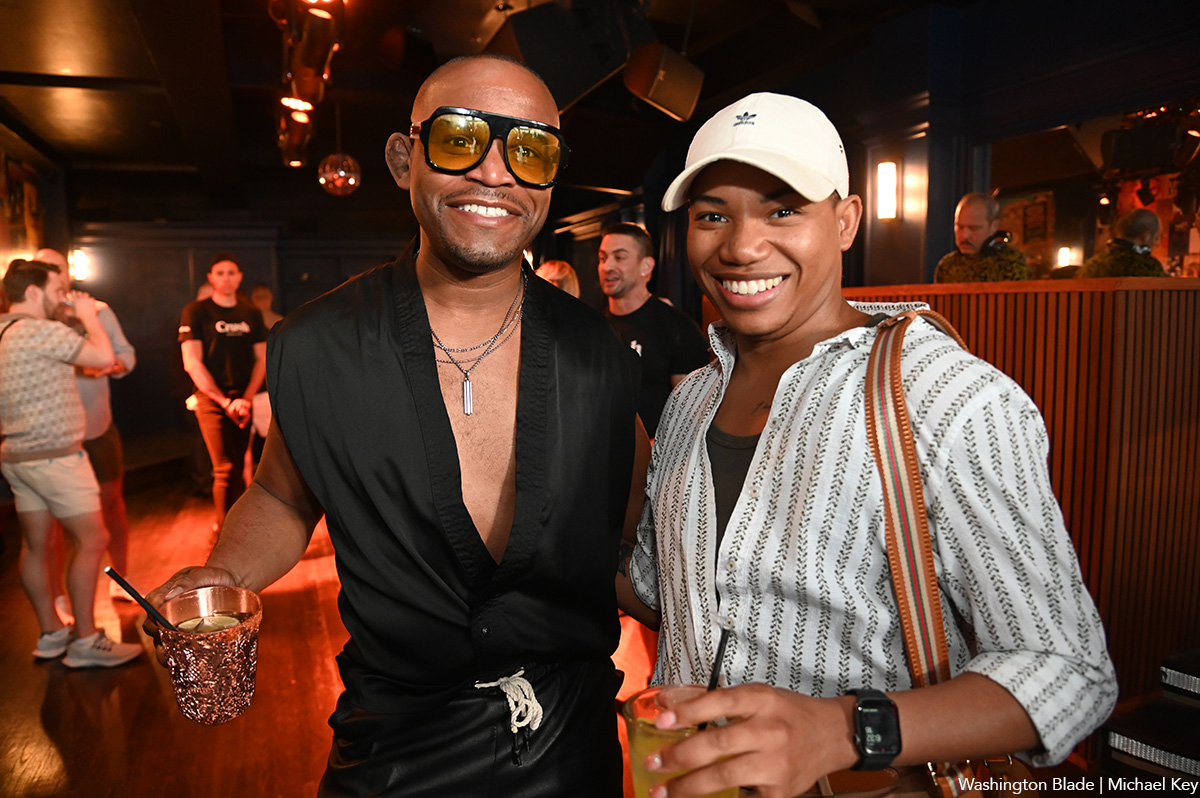
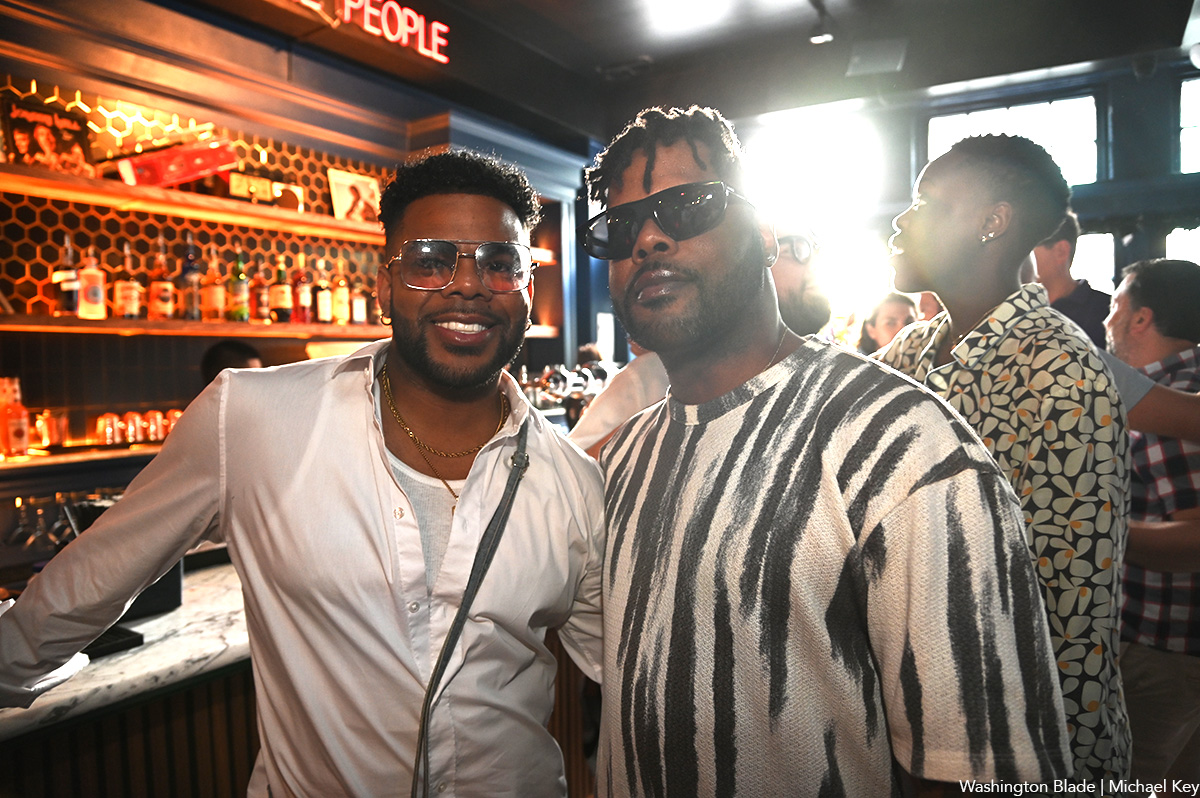
a&e features
What to expect at the 2024 National Cannabis Festival
Wu-Tang Clan to perform; policy discussions also planned

(Editor’s note: Tickets are still available for the National Cannabis Festival, with prices starting at $55 for one-day general admission on Friday through $190 for a two-day pass with early-entry access. The Washington Blade, one of the event’s sponsors, will host a LGBTQIA+ Lounge and moderate a panel discussion on Saturday with the Mayor’s Office of LGBTQ Affairs.)
With two full days of events and programs along with performances by Wu-Tang Clan, Redman, and Thundercat, the 2024 National Cannabis Festival will be bigger than ever this year.
Leading up to the festivities on Friday and Saturday at Washington, D.C.’s RFK Stadium are plenty of can’t-miss experiences planned for 420 Week, including the National Cannabis Policy Summit and an LGBTQ happy hour hosted by the District’s Black-owned queer bar, Thurst Lounge (both happening on Wednesday).
On Tuesday, the Blade caught up with NCF Founder and Executive Producer Caroline Phillips, principal at The High Street PR & Events, for a discussion about the event’s history and the pivotal political moment for cannabis legalization and drug policy reform both locally and nationally. Phillips also shared her thoughts about the role of LGBTQ activists in these movements and the through-line connecting issues of freedom and bodily autonomy.
After D.C. residents voted to approve Initiative 71 in the fall of 2014, she said, adults were permitted to share cannabis and grow the plant at home, while possession was decriminalized with the hope and expectation that fewer people would be incarcerated.
“When that happened, there was also an influx of really high-priced conferences that promised to connect people to big business opportunities so they could make millions in what they were calling the ‘green rush,'” Phillips said.
“At the time, I was working for Human Rights First,” a nonprofit that was, and is, engaged in “a lot of issues to do with world refugees and immigration in the United States” — so, “it was really interesting to me to see the overlap between drug policy reform and some of these other issues that I was working on,” Phillips said.
“And then it rubbed me a little bit the wrong way to hear about the ‘green rush’ before we’d heard about criminal justice reform around cannabis and before we’d heard about people being let out of jail for cannabis offenses.”
“As my interests grew, I realized that there was really a need for this conversation to happen in a larger way that allowed the larger community, the broader community, to learn about not just cannabis legalization, but to understand how it connects to our criminal justice system, to understand how it can really stimulate and benefit our economy, and to understand how it can become a wellness tool for so many people,” Phillips said.
“On top of all of that, as a minority in the cannabis space, it was important to me that this event and my work in the cannabis industry really amplified how we could create space for Black and Brown people to be stakeholders in this economy in a meaningful way.”

“Since I was already working in event production, I decided to use those skills and apply them to creating a cannabis event,” she said. “And in order to create an event that I thought could really give back to our community with ticket prices low enough for people to actually be able to attend, I thought a large-scale event would be good — and thus was born the cannabis festival.”
D.C. to see more regulated cannabis businesses ‘very soon’
Phillips said she believes decriminalization in D.C. has decreased the number of cannabis-related arrests in the city, but she noted arrests have, nevertheless, continued to disproportionately impact Black and Brown people.
“We’re at a really interesting crossroads for our city and for our cannabis community,” she said. In the eight years since Initiative 71 was passed, “We’ve had our licensed regulated cannabis dispensaries and cultivators who’ve been existing in a very red tape-heavy environment, a very tax heavy environment, and then we have the unregulated cannabis cultivators and cannabis dispensaries in the city” who operate via a “loophole” in the law “that allows the sharing of cannabis between adults who are over the age of 21.”
Many of the purveyors in the latter group, Phillips said, “are looking at trying to get into the legal space; so they’re trying to become regulated businesses in Washington, D.C.”
She noted the city will be “releasing 30 or so licenses in the next couple of weeks, and those stores should be coming online very soon” which will mean “you’ll be seeing a lot more of the regulated stores popping up in neighborhoods and hopefully a lot more opportunity for folks that are interested in leaving the unregulated space to be able to join the regulated marketplace.”
National push for de-scheduling cannabis
Signaling the political momentum for reforming cannabis and criminal justice laws, Wednesday’s Policy Summit will feature U.S. Sens. Raphael Warnock (D-Ga.), Jeff Merkley (D-Ore.), Elizabeth Warren (D-Mass.), and Chuck Schumer (D-N.Y.), the Senate majority leader.
Also representing Capitol Hill at the Summit will be U.S. Congresswoman Eleanor Holmes Norton (D-D.C.) and U.S. Reps. Earl Blumenauer (D-Ore.) and Barbara Lee (D-Calif.) — who will be receiving the Supernova Women Cannabis Champion Lifetime Achievement Award — along with an aide to U.S. Rep. David Joyce (R-Ohio).
Nationally, Phillips said much of the conversation around cannabis concerns de-scheduling. Even though 40 states and D.C. have legalized the drug for recreational and/or medical use, marijuana has been classified as a Schedule I substance since the Controlled Substances Act was passed in 1971, which means it carries the heftiest restrictions on, and penalties for, its possession, sale, distribution, and cultivation.
The U.S. Department of Health and Human Services formally requested the drug be reclassified as a Schedule III substance in August, which inaugurated an ongoing review, and in January a group of 12 Senate Democrats sent a letter to the Biden-Harris administration’s Drug Enforcement Administration urging the agency to de-schedule cannabis altogether.
Along with the Summit, Phillips noted that “a large contingent of advocates will be coming to Washington, D.C. this week to host a vigil at the White House and to be at the festival educating people” about these issues. She said NCF is working with the 420 Unity Coalition to push Congress and the Biden-Harris administration to “move straight to de-scheduling cannabis.”
“This would allow folks who have been locked up for cannabis offenses the chance to be released,” she said. “It would also allow medical patients greater access. It would also allow business owners the chance to exist without the specter of the federal government coming in and telling them what they’re doing is wrong and that they’re criminals.”
Phillips added, however, that de-scheduling cannabis will not “suddenly erase” the “generations and generations of systemic racism” in America’s financial institutions, business marketplace, and criminal justice system, nor the consequences that has wrought on Black and Brown communities.
An example of the work that remains, she said, is making sure “that all people are treated fairly by financial institutions so that they can get the funding for their businesses” to, hopefully, create not just another industry, but “really a better industry” that from the outset is focused on “equity” and “access.”
Policy wonks should be sure to visit the festival, too. “We have a really terrific lineup in our policy pavilion,” Phillips said. “A lot of our heavy hitters from our advocacy committee will be presenting programming.”
“On Saturday there is a really strong federal marijuana reform panel that is being led by Maritza Perez Medina from the Drug Policy Alliance,” she said. “So that’s going to be a terrific discussion” that will also feature “representation from the Veterans Cannabis Coalition.”
“We also have a really interesting talk being led by the Law Enforcement Action Partnership about conservatives, cops, and cannabis,” Phillips added.
Cannabis and the LGBTQ community
“I think what’s so interesting about LGBTQIA+ culture and the cannabis community are the parallels that we’ve seen in the movements towards legalization,” Phillips said.
The fight for LGBTQ rights over the years has often involved centering personal stories and personal experiences, she said. “And that really, I think, began to resonate, the more that we talked about it openly in society; the more it was something that we started to see on television; the more it became a topic in youth development and making sure that we’re raising healthy children.”
Likewise, Phillips said, “we’ve seen cannabis become more of a conversation in mainstream culture. We’ve heard the stories of people who’ve had veterans in their families that have used cannabis instead of pharmaceuticals, the friends or family members who’ve had cancer that have turned to CBD or THC so they could sleep, so they could eat so they could get some level of relief.”
Stories about cannabis have also included accounts of folks who were “arrested when they were young” or “the family member who’s still locked up,” she said, just as stories about LGBTQ people have often involved unjust and unnecessary suffering.
Not only are there similarities in the socio-political struggles, Phillips said, but LGBTQ people have played a central role pushing for cannabis legalization and, in fact, in ushering in the movement by “advocating for HIV patients in California to be able to access cannabis’s medicine.”
As a result of the queer community’s involvement, she said, “the foundation of cannabis legalization is truly patient access and criminal justice reform.”
“LGBTQIA+ advocates and cannabis advocates have managed to rein in support of the majority of Americans for the issues that they find important,” Phillips said, even if, unfortunately, other movements for bodily autonomy like those concerning issues of reproductive justice “don’t see that same support.”
-

 Africa4 days ago
Africa4 days agoCongolese lawmaker introduces anti-homosexuality bill
-

 District of Columbia17 hours ago
District of Columbia17 hours agoReenactment of first gay rights picket at White House draws interest of tourists
-

 World4 days ago
World4 days agoOut in the World: LGBTQ news from Europe and Asia
-

 Arizona21 hours ago
Arizona21 hours agoAriz. governor vetoes anti-transgender, Ten Commandments bill












